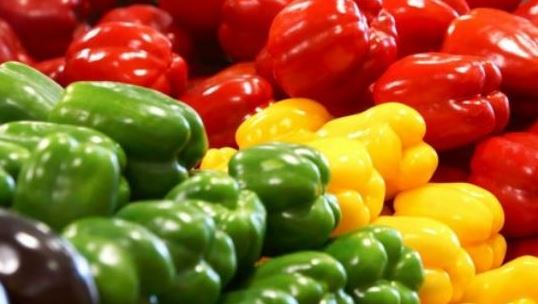Variety is the spice of life and bell pepper does not slack in giving varieties of taste, nutrients and choice.
Sometimes referred to as sweet pepper, it comes in different colours ranging from green to yellow, orange and red, and seldom in white and purple.
A red bell pepper is the mature vegetable, the green is unripe while it takes the yellow and orange colours between unripe and ripe stages.
Apart from the colour range, as the bell pepper ages, its nutritional content and flavour changes.
While all colour variants of bell pepper are rich in vitamin C, red contains more of the vitamin and beta-carotene.
Here are seven reasons to make it a part of your meals.
Enhances formation of red blood cells
Red blood cells are needed to transport oxygen around the body and remove carbon dioxide. They typically live for about 120 days and then die. Insufficient or poor functioning red blood cells causes a condition known as anaemia.
No worries, bell peppers are a good source of pyridoxine, the most common type of vitamin B6, a family of nutrients that are important for the formation of red blood cells.
Aids blood clotting
Phylloquinone, a form of vitamin K naturally present in bell pepper, comes to the rescue by aiding clotting of blood when there is bleeding.
Good for pregnant women
Bell pepper contains folate which supports the healthy development of foetus.
Your heart’s friend
The potassium content of bell pepper neutralises the adverse effects of sodium, protecting you from cardiovascular diseases including strokes and heart attacks.
Quercetin, a polyphenol antioxidant found in it, also promotes good heart health.
Prevents cancer
Bell peppers serve as powerful antioxidants because of the abundance of vitamins in them. They help fight free radicals and prevent the growth of cancerous cells.
Capsanthin, a fat soluble pigment responsible for the redness of the pepper, is especially good for the prevention of colon cancer.
Improved vision
Lutein and zeaxanthin, both carotenoids found in relatively high amounts in bell pepper, protect the human retina — the light-sensitive inner wall of the eye — from oxidative damage and permanent sight damage.
Aids digestion
Bell peppers contain niacin, a form of vitamin B which aids digestion and a healthy digestive system.
Copyright 2024 TheCable. All rights reserved. This material, and other digital content on this website, may not be reproduced, published, broadcast, rewritten or redistributed in whole or in part without prior express written permission from TheCable.
Follow us on twitter @Thecablestyle

